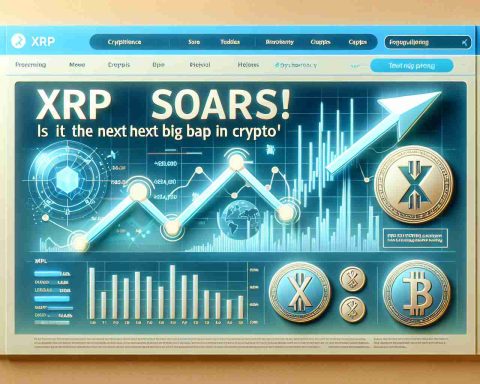Better Markets, a dedicated advocate for financial reform, is firmly backing the SEC in its legal confrontation with Ripple regarding the classification of XRP. The organization filed an Amicus Brief with the US Court of Appeals, expressing its deep concerns after Judge Analisa Torres’ ruling determined that XRP sales on secondary markets should not be categorized as securities.
The organization has strongly criticized Judge Torres’ decision, declaring it lacks legal and factual support. Better Markets argues that this ruling could expose investors to potential fraud within the increasingly volatile cryptocurrency sector. The organization contends that it could particularly jeopardize inexperienced investors, rendering them vulnerable to questionable crypto promotional tactics.
In its filing, Better Markets warns that upholding this ruling would significantly diminish the SEC’s capacity to shield investors from potential exploitation within the crypto market. Furthermore, they emphasize that the implications of this decision could extend beyond cryptocurrencies, potentially allowing other asset classes to bypass securities regulations.
Moreover, Better Markets challenges the application of the Howey test in the judge’s ruling. They point out that investors bought XRP with the expectation of profit, often influenced by Ripple’s enticing marketing. They highlight that such promotional strategies would naturally lead investors to believe in the potential rises in XRP’s value.
Given these concerns, Better Markets is calling for the appeals court to reconsider and overturn the initial ruling, asserting that XRP’s secondary market sales should be classified as securities. As of now, XRP is trading at $3.16, reflecting a slight decline yet showing a notable rise of 38% over the past month.
Balancing Innovation and Regulation: The Ripple Effect on the Financial Landscape
The ongoing SEC vs. Ripple case represents a critical crossroads for both the cryptocurrency market and regulatory frameworks surrounding it. The potential implications of this legal battle extend far beyond XRP, affecting societal trust in financial systems and influencing future regulatory approaches across a broad spectrum of asset classes.
The classification of XRP as a security, or lack thereof, could set a powerful precedent, impacting how cryptocurrencies are perceived and regulated worldwide. As Better Markets warns, if secondary market sales are exempt from securities regulations, it could embolden dubious practices among crypto promoters, undermining investor protection and potentially leading to an increase in financial fraud. This situation is particularly precarious for inexperienced investors who may not fully grasp the risks associated with volatile assets.
Moreover, a favorable outcome for Ripple not only challenges the SEC’s authority but may also encourage other financial markets to seek similar regulatory leniencies. Such a shift could dilute the security regulations designed to uphold market integrity, raising concerns about the long-term stability of emerging financial technologies.
The environmental implications cannot be overlooked either. The cryptocurrency sector has been criticized for its substantial energy consumption and carbon footprint. As regulatory clarity evolves, there is a pressing need for regulations that prioritize sustainable practices within the industry, balancing innovation with responsibility to prevent long-term ecological degradation.
As the case unfolds, stakeholders must grapple with the multifaceted repercussions that extend beyond legal definitions, shaping the future nexus of finance, technology, and societal trust. The quest for clarity in the crypto landscape is paramount—not only for the industry players but for investors and consumers who rely on robust protections against the ever-present risks of market volatility.
SEC vs. Ripple: Why Better Markets is Pressing for a Major Ruling Change
## The Ongoing Legal Battle Over XRP
As the cryptocurrency landscape continues to evolve, the legal status of various digital assets remains a contentious topic. The recent legal battle between the SEC (Securities and Exchange Commission) and Ripple Labs has garnered significant attention, particularly concerning the classification of XRP. Better Markets, an advocacy group focused on financial reform, is a staunch supporter of the SEC, recently filing an Amicus Brief with the US Court of Appeals to express its concerns regarding a pivotal ruling by Judge Analisa Torres.
## Overview of the Controversy
Judge Torres ruled that XRP sales on secondary markets should not be classified as securities, a decision that has significant implications for the regulation of cryptocurrency. Better Markets has vocally opposed this ruling, arguing that it lacks both legal and factual grounding. The organization warns that the ruling could pave the way for increased fraud in the cryptocurrency market, particularly risking the interests of inexperienced investors who may be easily misled by aggressive marketing strategies.
## Implications for the Cryptocurrency Market
Pros and Cons of the Ruling
Pros:
1. Increased market activity: The ruling allows for more trading flexibility in XRP, potentially leading to heightened market participation.
2. Innovation Encouragement: By reducing regulatory constraints on XRP, the decision may foster innovation and development within the cryptocurrency sector.
Cons:
1. Investor Protection Risks: Without classification as a security, investors might be exposed to fraudulent activities without the same level of protection historically offered in traditional financial markets.
2. Regulatory Uncertainty: The ruling could create a precedent that would lead to a dilution of securities regulations across other asset classes, not just cryptocurrencies.
## Better Markets’ Critique of the Howey Test Application
Better Markets specifically challenges the application of the Howey test, which is used to determine whether certain transactions qualify as investment contracts. They argue that many XRP buyers, influenced by Ripple’s marketing, invested with an expectation of profit based on the company’s promotional efforts.
Market Data and Current XRP Pricing
Currently, XRP is trading at around $3.16. Despite a slight decline, it demonstrates a significant increase of approximately 38% over the past month, showcasing the volatile nature of cryptocurrency assets amid ongoing legal uncertainties.
## Future Predictions and Trends
The decision by the Court of Appeals could have far-reaching consequences, not only for Ripple but also for the entire cryptocurrency market. Should the ruling be overturned and XRP classified as a security, it might lead to increased regulatory scrutiny across the industry. This could either stabilize the market by instilling investor confidence or stifle innovation by imposing harsh regulations.
## Call to Action
Better Markets is urging the appeals court to promptly reconsider the ruling, aiming to reinforce the SEC’s ability to protect investors in a rapidly shifting market. The outcome of this case could set a critical precedent for how cryptocurrencies are managed within American financial law.
For more insights into the evolution of cryptocurrency regulations, visit Investopedia.











